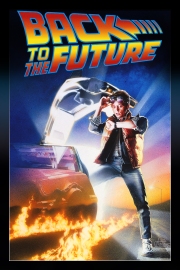
Back To The Future
Like the beginning of every new year, here I am thinking about my resolutions for 2014. So I thought I’d write a post on how to talk about your new year’s resolutions and, while we’re at it, why not revise the full range of future tenses in the English language?
TO BE GOING TO
This is the tense you’d use to talk about your new year’s resolutions since ‘to be going to’ is used when expressing an intention:
es. This year I’m going to learn a new language.
‘to be going to’ is also used to make a prediction when there is evidence:
es. Look at those clouds! It’s going to rain (read below about making predictions not based on any evidence)
PRESENT CONTINUOUS
You should use this tense when talking about a fixed plan or arrangement:
es. I’m flying to London tomorrow. (= I bought the ticket so it’s a fixed plan, not a mere intention)
PRESENT SIMPLE
Use this tense when talking about something which is scheduled:
es. The train leaves at 4 o’clock.
WILL (FUTURE SIMPLE)
This can come as a surprise but ‘will’ is not used to talk about future plans or intentions. Instead we use ‘will’ for:
- decisions on the spot: “Oh I’m late! I’ll take a taxi!”
- predictions NOT based on any evidence (usually with verbs like think, believe etc) : “I think she won’t pass the exam”
- promises: “I’ll be there no matter what!”
FUTURE CONTINUOUS** (will/won’t+be+ -ing)
Use this tense when talking about an action that will be in progress at or around a time in the future:
es. This time next week, I’ll be lying on a beach.
FUTURE PERFECT (will/won’t+have+past participle)
When speaking about the completion of an action BY a specific time in the future, we use the ‘future perfect’ :
es. I’ll have finished this report by Friday afternoon.
FUTURE PERFECT CONTINUOUS (will/won’t+have+been+ -ing)
Also, like with the present perfect continuous, you should use the ‘future perfect continuous’ when talking about the duration of an action in the future.
es. By the end of this year, I’ll have been working for this company for three years.
MIGHT
If you’re a person (like me) who finds it difficult to make plans because you’re never sure and you need time to think about it etc. Then you can use ‘might’ when talking about plans/intentions you are not sure about:
es. I might go to the party (or I might not go, I haven’t made up my mind yet!)
** You can also use the ‘present perfect continuous’ to talk about future plans if you want to add emphasis or sound more formal:
es. Sir, when will you be arriving at the hotel?
Here’s a short letter where a mix of future tenses are used:
I’m going to Thailand tomorrow, my bus leaves at six in the morning. So this time tomorrow I’ll be lying on a beach. But love, I promise I’ll think about you a lot and I’m going to call you as soon as I get there. I might go and see Francisca while I’m there but haven’t decided yet. Anyway, I’m also going to work on my book while there (I checked the weather forecast and it’s going to rain on Saturday). I’ll have finished the first chapter by the end of my holiday. I can’t believe I’ll have been travelling in Asia for two months by then!